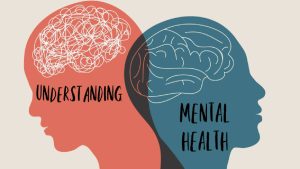Breaking the Stigma: The Importance of Mental Health Support
Mental health support is vital for emotional, psychological, and social well-being. Unfortunately, it has long been overshadowed by stigma and misconceptions, leaving many without the care they need. Prioritizing mental health care empowers individuals to seek help and fosters a compassionate society where everyone can thrive. This article explores the importance of emotional well-being, debunks common myths, and provides actionable steps to promote wellness.
What is Mental Health?
Mental health refers to our emotional, psychological, and social well-being. It influences how we think, feel, and act. Additionally, addressing mental health needs helps individuals cope with stress, build relationships, and make meaningful life choices. Good mental health is essential at every stage of life, from childhood to adulthood.
Why Mental Health Matters
Addressing emotional and psychological needs is as important as physical health care. Here’s why focusing on mental wellness matters:
- Improved Emotional Health: Provides tools to handle stress and life challenges effectively.
- Reduced Stigma: Encourages open conversations and acceptance.
- Stronger Relationships: Helps individuals communicate and connect more empathetically.
For more tips on promoting self-care, explore our article on mental health and self-care.
Addressing the Stigma Surrounding Mental Health
For many years, struggles with emotional well-being have been stigmatized, discouraging individuals from seeking the help they need. By fostering acceptance and understanding, we can break down these barriers and build a more supportive society.
Common Myths About Mental Health
- Myth: People with mental health disorders are dangerous.
- Fact: The majority of people with mental health issues are not violent and are often victims rather than perpetrators.
- Myth: Seeking help shows weakness.
- Fact: Reaching out for help requires strength and courage.
- Myth: Mental health issues are rare.
- Fact: One in four people will face a mental health problem during their lifetime.
To learn more, check out the World Health Organization’s mental health resources.
The Connection Between Mental and Physical Health
Mental and physical health are deeply interconnected. Chronic stress, anxiety, and depression can lead to physical conditions like heart disease, weakened immunity, and high blood pressure. Addressing emotional health can prevent these complications and enhance overall well-being.
Practical Ways to Promote Mental Health
1. Encourage Open Conversations
Creating an environment where people feel safe discussing mental health reduces stigma. Discover how to foster meaningful interactions in our guide on building strong relationships.
2. Offer a Listening Ear
Sometimes, listening without judgment is the best way to support someone in need. Providing emotional support can make a big difference.
3. Educate Yourself and Share Knowledge
Learn about common mental health conditions to challenge stereotypes. Our mental health education resources offer valuable insights.
4. Seek Professional Help
Encourage therapy, counseling, or medical assistance for those who need it. If you’re seeking guidance, check the National Institute of Mental Health’s resources.
5. Prioritize Self-Care
Self-care is an essential part of mental wellness. Activities like exercise, mindfulness, and relaxation techniques can significantly improve emotional well-being. Check out our article on self-care strategies for more tips.
When to Seek Professional Help
Recognizing the signs that professional help is needed is crucial. These signs may include:
- Persistent sadness or hopelessness
- Difficulty managing daily tasks
- Changes in appetite or sleep patterns
- Withdrawing from friends and loved ones
If you or someone you know is experiencing these symptoms, consider reaching out to a qualified mental health professional or local support service.
Breaking the Stigma: The Role of Society
Promoting mental health requires collective effort. Here’s how different sectors can help:
In Schools
Integrate mental health education into curriculums to equip young people with the tools to manage stress and emotional challenges.
In the Workplace
Encourage mental health awareness by offering employee support programs and creating open-door policies.
In Healthcare
Ensure that emotional care is as accessible and prioritized as physical health services.
For more ideas, read our post on workplace mental health.
Final Thoughts
Emotional support and mental health care are critical for overall well-being. By addressing psychological challenges, we can build a compassionate, stigma-free society. Explore more resources and tips on our website, 9PlusFun.



